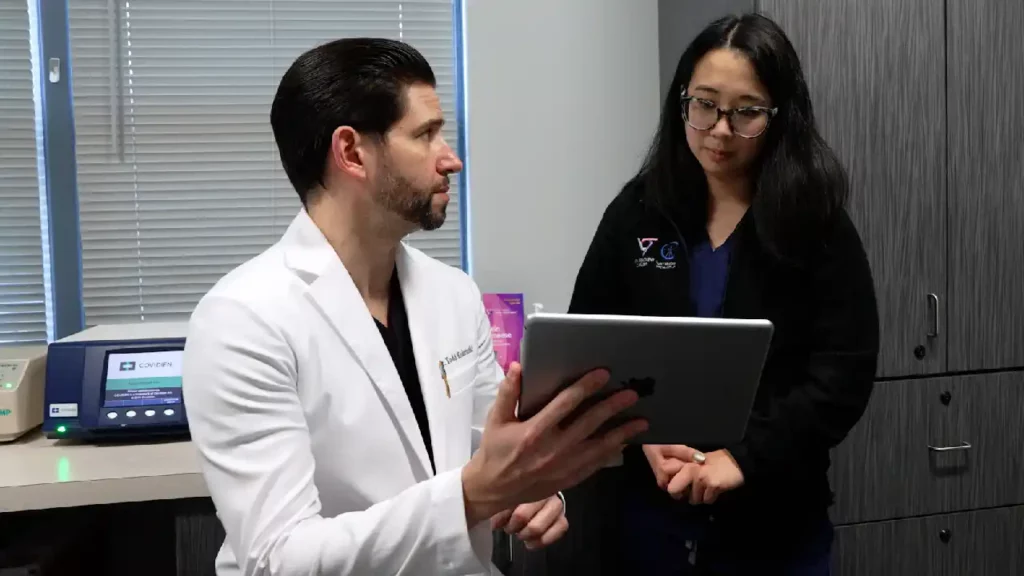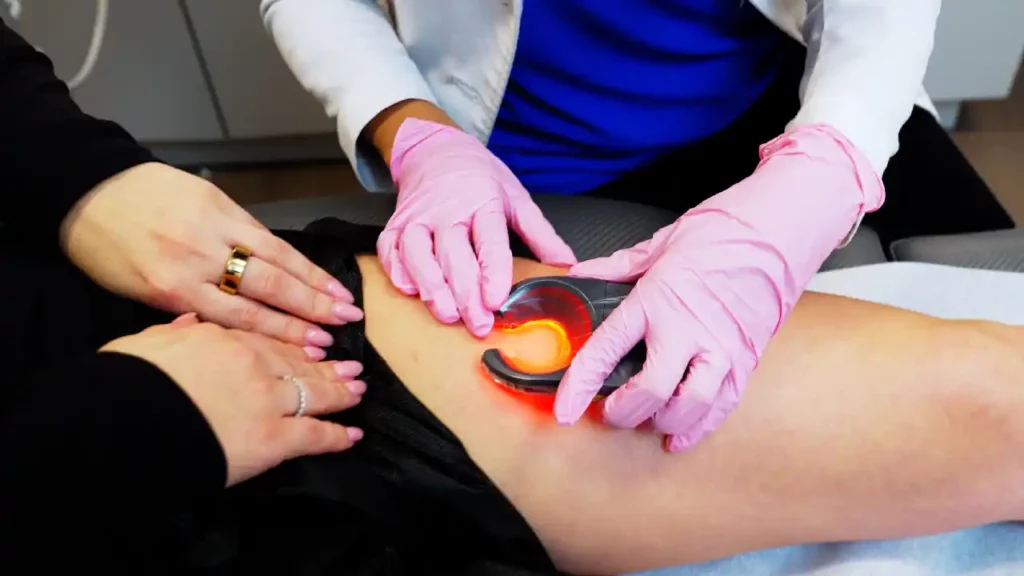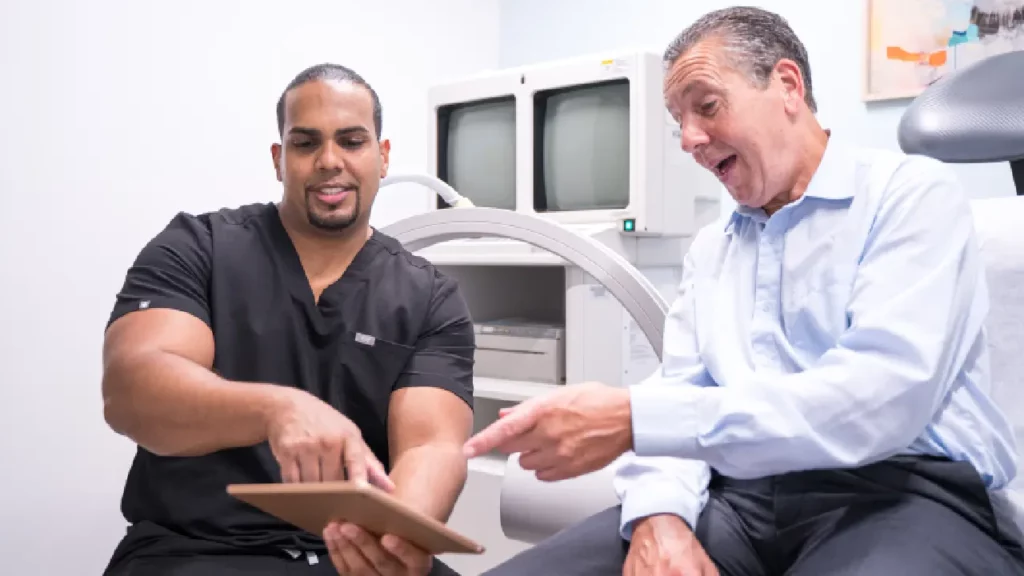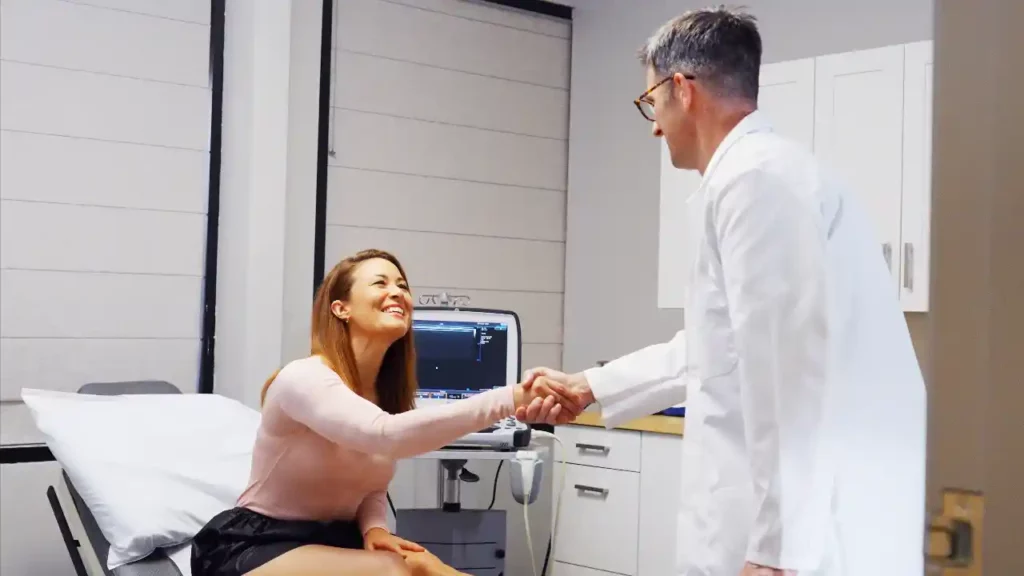How much Varicose Vein Surgery Cost? Is it necessary?
Varicose vein surgery cost can vary significantly depending on the type of procedure, the severity of your condition, and whether your insurance covers it. While surgery may seem like the most complete solution, there are also non-surgical alternatives that are effective and often more affordable.
This guide breaks down everything you need to know—from cost and insurance to the best alternatives available.
Why Do Varicose Veins Form?
Varicose veins are enlarged, twisted veins often found in the legs. They occur when vein valves weaken, allowing blood to pool down in the legs instead of flowing upward to make it back to the heart. This can cause pressure buildup in the legs and eventually lead to bulging, visible veins at the skin’s surface.
Causes include:
- Family history
- Pregnancy or hormonal changes
- Prolonged standing or sitting
- Aging
- Obesity
Additionally, a lack of regular movement or physical activity can slow down circulation, contributing to vein pressure. These symptoms can lead to discomfort, swelling, and aching legs. For more on how vein conditions develop, visit our vein diseases resource.
What Are the Signs That Surgery Might Be Necessary?
While the vast majority of cases can be managed non-surgically, surgery may be necessary if:
- Veins are causing significant pain or swelling
- Skin changes or ulcers are present
- Other minimally-invasive, non-surgical treatments haven’t worked
If you’re dealing with persistent symptoms, it’s time to explore your vein treatment options.
How Much Does Varicose Vein Surgery Cost?
Varicose veins surgery cost typically ranges between $1,500 and $3,500 per leg, depending on the technique used and your geographical location.
Factors influencing the cost include:
- Type of procedure (e.g., vein stripping vs. endovenous surgery)
- Anesthesia use
- Facility fees and the surgeon’s experience
- Number of veins needing treatment
- Insurance coverage
Consult with your provider or book an appointment to get a personalized estimate based on your unique condition.
Does Insurance Cover Varicose Vein Surgery?
Many insurance plans do cover surgery when it’s deemed medically necessary. If you’re experiencing leg pain, swelling, heaviness, or skin issues, your vein treatment is more likely to be covered.
Keep in mind that documentation is often required, such as ultrasound results and medical notes detailing symptoms. Submitting these correctly can influence approval. While we also offer cosmetic procedures, these, however, may not be included. If you’re unsure, our staff can help you verify coverage when you book an appointment.
Are There Alternatives to Surgery?
Absolutely. In many cases, non-surgical procedures are just as effective for managing symptoms and improving appearance. These techniques target the root of the problem with less downtime and lower risk than traditional surgery.
Minimally invasive options include:
- Radiofrequency Ablation (RFA): This procedure uses radiofrequency energy to heat and collapse the affected vein from the inside. It’s performed under local anesthesia and offers rapid recovery. Patients typically resume normal activities within a day, and the results are long-lasting for many with symptomatic varicose veins.
- Endovenous Laser Therapy (EVLT): EVLT works similarly to RFA but uses laser energy instead. A small fiber is inserted into the vein, delivering precise laser pulses that close the vein wall. It’s minimally invasive, highly effective, and has a very low rate of complications.
- VenaSeal adhesive closure: VenaSeal uses a specially formulated medical adhesive to seal the problematic vein. The procedure doesn’t require heat or multiple injections, making it a preferred option for patients who are needle-sensitive or at risk from heat-based methods. It’s fast, comfortable, and often doesn’t require compression stockings afterward.
- Sclerotherapy for smaller veins: This method involves injecting a solution directly into smaller varicose or spider veins, causing them to close and eventually fade. It’s often used cosmetically but can also relieve minor symptoms. Multiple sessions may be needed for optimal results, especially in widespread vein conditions.
Recovery is typically quicker with these options, and patients often return to regular activities within a day. These methods are widely available and can be tailored to your unique anatomy and goals. Explore more vein treatments here.
What Is the Best Treatment for Venous Insufficiency?
If you’re wondering what is the best treatment for venous insufficiency, your options often include RFA and EVLT. These procedures target faulty veins with heat, sealing them shut and redirecting blood to healthy veins.
They’re effective, safe, and don’t require surgery. Learn more about them in our article about what is the best treatment for venous insufficiency.
What Are the Pros and Cons of Varicose Vein Surgery?
Pros:
- Permanent removal of problematic veins
- Effective for severe or large varicose veins
- Covered by most insurance if medically necessary
Cons:
- Higher cost than non-surgical options
- Recovery time can be longer (up to two weeks)
- May involve general anesthesia
Before committing to your decision, weigh these considerations and ask your specialist whether non-surgical alternatives might be better. In most cases, minimally-invasive procedures tend to be the go-to option for vein specialists because they have been proven to be effective and safe time and time again.
Where Can You Get Personalized Treatment for Varicose Veins?
Looking for expert guidance on varicose veins surgery cost and treatment options? Our nationwide network of clinics is here to help with a seamless, patient-centered approach from consultation to follow-up care.
We offer:
- Board-certified vein specialists
- Non-invasive and surgical treatments
- Insurance guidance
- Personalized treatment plans
Each patient’s condition is unique. That’s why our providers evaluate your medical history, lifestyle, and symptoms before recommending any treatment options. We have many clinic locations because we want to be in as convenient a location as possible for our patients. Use our locations tool to find a clinic near you!
Final Thoughts on Vein Care and Costs
When deciding on surgery, think about your symptoms, the condition’s severity, and your long-term goals. Often, non-surgical alternatives offer the same relief with less recovery and at a lower cost. Knowing your full range of options allows you to make the most informed choice.
Keep in mind that untreated varicose veins can lead to worsening symptoms or complications over time. Proactively addressing your condition ensures better outcomes and minimizes future expenses. Understanding your full range of vein treatment options is key. Whether you go with surgery or a less invasive method, we’ll help guide you every step of the way.
If you’re ready to take the next step toward healthier legs, book your consultation today. Our team is here to support your journey to lasting comfort and confidence.









